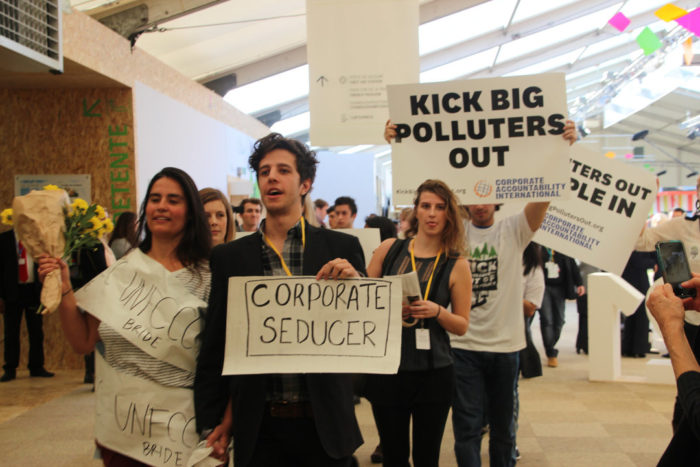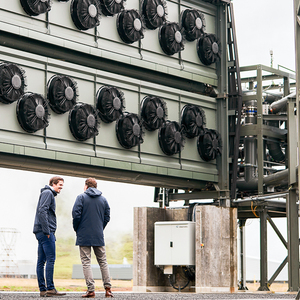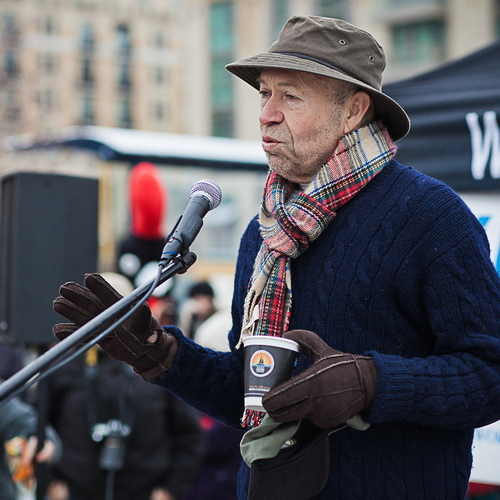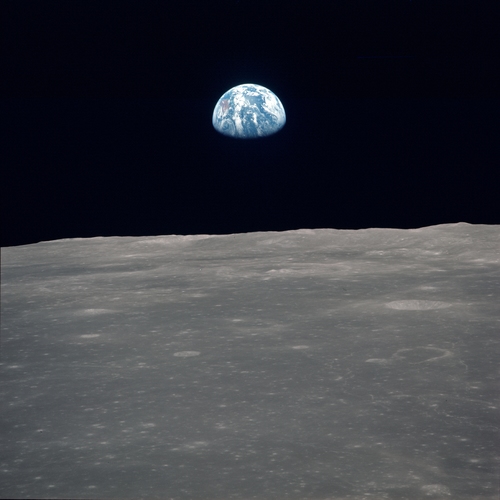
Image Credit: Takver under Flickr Creative Commons license
At 7:27 p.m. local time on Saturday, December 12, 2015, a new Paris Agreement on global climate change was born after four years of taxing labor. Its much-anticipated birth was quickly followed by copious self-congratulations by many of the parents in the room who almost all were overcome by joy and bursting with pride.
Praise heaped upon newborns should be taken with a grain of salt. “Historic” is a term often thrown about too cavalierly, and a “new era” does not start every time government bureaucrats pull a few all-nighters. But, what has come out of Paris clearly marks a new direction for global climate cooperation.
We wish the newborn well, but upon some post-natal reflection, it is clear that the birth of the Paris Agreement should be cause for both hope and caution. Certain political developments are principally good and welcome. Other changes are largely bad. And some purposeful omissions may be plain ugly.
The good: climate change policy is back
The Paris Agreement signals that climate change is back at the center of the global political agenda — at least for now.
A collective weight has been lifted off the backs of the many delegates who for the past six years have been struggling to recover from the Copenhagen fiasco in 2009, where countries failed to agree on a common strategy. The lingering gloom of Copenhagen has been replaced by Paris euphoria. For this, the French hosts deserve much credit.
The two weeks that preceded the birth of the Paris Agreement helped to breathe new and much-needed life into the multilateral process of formulating a global approach to climate change mitigation and adaptation. Unprecedented participation by world leaders, including President Obama, Chinese president Xi Jinping and other heads of state, at the beginning of the summit helped set the tone that then allowed national delegates to make the necessary compromises.
The Paris Agreement signifies a very welcome return to multilateralism. Much of the Paris conference was also refreshingly transparent; the attempt to be inclusive was honest.
As a result, a new collective ambition — of “holding the increase in the global average temperature to well below 2 C° above pre-industrial levels and to pursue efforts to limit the temperature increase to 1.5 C° above pre-industrial levels” (Article 2) — has made its way into the text.
A major strength of the Paris Agreement is its near universal participation and acceptance of responsibility. This is much-welcome progress from the 1997 Kyoto Protocol, which only required mitigation action by a limited number of industrial country emitters responsible for bulk of historical emissions. It is also an important step forward from the 2009 Copenhagen Accord, which was put together at great haste by a small group, leaving most countries on the political sidelines.
The bad: unaccountable and uncertain
The 1992 United Nations Framework Convention on Climate Change laid down a broad legal structure for global cooperation to which future agreements were intended to provide more specificity. Paris did nothing of the sort.
Instead, the Paris Agreement introduces a new, and mainly worrisome, model of voluntary “nationally determined contributions” by governments. Many of the results are expected to be delivered by the magic of markets and not-yet-commercially-available revolutionary technology, with world leaders cheering the change along.
For different reasons, this new model of voluntary national measures fits the interests of many key players, including the United States, China, and India. But it leaves the future timetable for actual emission reductions squarely in the hands of the largest polluters with no collective system in place to enforce that individual countries meet clear targets.
The success of the system depends too much on the good will of world leaders. Many national politicians who invested political capital in making the Paris Agreement a reality — for example, President Barack Obama — will not be in office to oversee even initial implementation. The continued interest of those who will replace them cannot be easily assumed.
The result is a global system characterized by political uncertainty about the future scope of action and a lack of a clear price signal for carbon. This is a situation that markets will not respond well to and the planet may not be able to afford.
The ugly: no pledge, no commitment
This so-called “bottom-up” approach may have been necessary to reach a deal in Paris. But it made it impossible to create an agreement where countries are clearly held answerable. The flamboyant language of aspiration coming out of Paris cannot hide the fact that the agreement is essentially void of clearly actionable commitments.
On both the two high-profile issues that matter the most — emission reductions and financial investments — there are no new explicit numerical targets for individual countries and no meaningful mechanism for ensuring accountability.
The Paris Agreement does not anywhere dare use the words “pledge” or “commitment.” So averse is the agreement to anything that may be seen as too binding that its announcement was delayed at the very last minute as the United States insisted on replacing the word ‘shall’ with ‘should’ in relation to the responsibility of industrialized countries to mitigate the effects of climate change (Article 4.4).
The result is a Paris agreement replete with the sound and fury of good intentions, but little else. It is heartwarming, for example, that Paris endorsed the new 1.5 C° temperature target. But what is not in the agreement is any clue to how this might be achieved. What is in the agreement suggests that it will not.
Similarly, it is nice that Article 7 on adaptation to climate change (a perennial developing country concern) is among the longest. But there is nothing concrete in that section, especially not on financial support. The inclusion of the language “loss and damage” to deal with potentially irreversible costs of climate change in vulnerable developing countries (Article 8) is a step in the right direction. But the related conference Decision attached to the Paris Agreement makes it clear that the article “does not involve or provide a basis for any liability or compensation” (Paragraph 52).
The collective result is a Paris Agreement that makes it necessary to continue talking about the same set of issues we have now talked about for a quarter of a century. Meanwhile, the reality of climate change grows worse.
Adil Najam is dean of the Frederick S. Pardee School of Global Studies at Boston University. Henrik Selin is an associate professor in the Pardee School. This post was originally published at The Conversation.
Weekly Newsletter
Get building science and energy efficiency advice, plus special offers, in your inbox.















7 Comments
COP21
The article has as its underlying assumption that carbon dioxide is a pollutant and that it is a "control knob" for global warming (aka climate change). Since there is no hard evidence that either of these positions are scientifically tenable, that makes any conclusions redundant. The final statement ("the reality of climate change grows worse") is meaningless.
Tony.
Response to Anthony Ratliffe
Anthony,
Contrary to your statement, the vast majority of scientists agree that rising levels of CO2 in our planet's atmosphere are raising average global temperatures. This fact is no longer in dispute.
Concerning the phrase you find to be "meaningless": the phrase may be stylistically inelegant, but it is meaningful. Climate change is a reality. The situation is worsening, because we are beginning to notice effects that have dangerous implications for human life on our planet.
Atmospheric effect of changes in CO2
Climate change is a permanent reality. It has always changed, and always will. To say that "the reality of climate change grows worse" is just meaningless arm waving. Your last sentence "The situation is worsening, because we are beginning to notice effects that have dangerous implications for human life on our planet" is an evidence free assertion. The IPCC would disagree with you.
Nobody disagrees that carbon dioxide is a greenhouse gas (but far from the most important one). Given that, there is strong disagreement between well qualified scientists as to how much effect a given change in atmospheric CO2 will change "average global temperatures", or even if there is an acceptable and accurate way of measuring this - the whole subject area is highly controversial, and much disputed. There is no evidence that CO2 is now or in the geological past has ever been a control knob for global warming - i.e that an increase in atmospheric CO2 will result in a simple and proportional increase in the global temperature. Indeed, there is much evidence that temperature changes preceed changes in CO2. Consider only that while the proportion of CO2 in the atmosphere has increased over the past 20 years or so, the measured temperature has seen no statistically meaningful change.
I prefer to let the facts guide my opinions, not the reverse.
Regards, Tony.
"Given that, there is strong
"Given that, there is strong disagreement between well qualified scientists as to how much effect a given change in atmospheric CO2 will change "average global temperatures", or even if there is an acceptable and accurate way of measuring this - the whole subject area is highly controversial, and much disputed."
Strong disagreement from scientists is a bit much. Instead there are probably 2 in 100 serious climate scientists that dispute that human induced high levels of CO2 are causing global climate change. Yes, those two percent seriously dispute the data and analysis. So what, I say. There's always been knuckleheads in the human population since time began.
2 in 100? Now you are just
2 in 100? Now you are just making things up. Where's your evidence for that claim? Who did the survey? What questions were asked? Where were the results published?
The set of beliefs which go to make up climate extremism are more like like astrology or a cult religion than science.
Tony.
2 in 100 dispute what?
The idea that "probably 2 in 100 serious climate scientists dispute" human induced climate change is also meaningless. How many of the 98 think we'll move 0.5 deg F? How many believe it will be 0.7? How many believe it will be 7 deg F? Because if most think that it will be less than, say, 2 deg F, are we really wise to crush human advancement for such middling "gains"? Depending on the metrics chosen, 85 to 92% of all heating needs and horsepower used by the world is driven by carbon fuels + nuclear. I guess we need to shut down human maintenance and advancement! I'll believe that the "98" credible scientists are sincere when they embrace a hair's-on-fire advocacy of nuclear power. Till then, this is the greatest leftest fraud of all time.
Steve,I am aware that a
Steve,
I am aware that a small proportion of individuals still do not accept the scientific evidence for man made global warning, which is in turn caused by increased CO2 from man made combustion of petroleum products. It is an established fact. One can always argue that there are small details in any factual account of reality that are unknown. This is a well known aspect of reality. One does not have to know every detail about a system to have great confidence in the correct analysis of the inputs and outputs of a system. Scientists have now acquired enough detailed data to have great confidence in this link.
You say this whole suggestion is meaningless. I think a better description is that this theory is meaningless to you. I put human caused climate change in the same category as human evolution is to some people. I think perhaps a better description than meaningless is that some people just dislike an idea so much that they deny where the vast predominance of evidence leads. They then latch onto the fact that not every single facet of a system has been analyzed and documented. All I can say is that no matter how much you want to rely on that debate tactic I still define it as being a faith based tactic. Good luck to you.
Log in or create an account to post a comment.
Sign up Log in